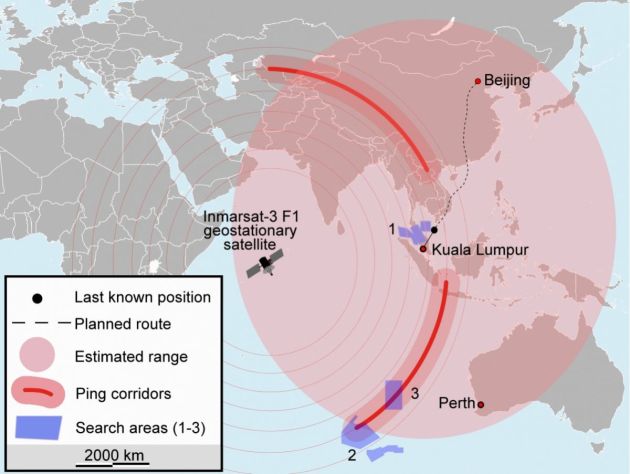Flight 370 update: The search continues for Malaysia Airlines Flight MH370

It's been almost three months since Malaysia Airlines Flight MH370 was lost on the early Saturday morning of March 8, with no remains of the aircraft found as of yet, and no clue as to the cause of its disappearance.
Despite millions of dollars spent in the search efforts, there are still no significant discoveries made. Flight MH370 remains a mystery, much to the pain of families and friends of those aboard the plane.
The search operations are not easy, as members of the search team and their sophisticated equipment grope aimlessly through the surface of the vast 60,000 square meters search area of inhospitable deep ocean, which experts say is a slow and a difficult process.
Where is Flight MH370? Unfortunately, for the entire world waiting for answers, any answers have yet to be found.
However, the search effort cannot simply give up and stop.
President Tim Clark of Emirates, a major Boeing 777 operator, said what actually happened to MH370 has to be made known.
The International Air Transport Association (IATA)'s Chief Executive, Tony Tyler, commented that the aircraft's no-trace disappearance was "unprecedented" in the aviation history, and should not happen again.
Flight MH370 was operated by a Boeing 777, an aircraft type that is generally considered among the safest planes ever built.
Clark said had the plane flown off course, it would have been intercepted by fighters. He wondered why the plane had not been circled by fighter jets when it was seen on the Malaysian military's primary radar. Thus, the industry should not start altering trackings of the flight until they have strong facts.
A former commander of the United States Air Force (USAF) for 23 years, who at one time led the USAF rescue and special operations school, Ron Bishop, speculates that the fate of MH370 is not something sinister, nor some mad conspiracy or not even the fault of the pilots.
Bishop thinks the plane most likely had a mechanical issue – perhaps a fire or cabin smoke – which prompted the crew to turn instruments off at the time the plane turned around, heading back to Malaysia.
When they turned left and started heading back to Malaysia, strongly suggested they had a problem, Bishop said. He continued saying that Flight MH370 must have lost cabin pressure, run out of fuel or may have been overcome by something.
Most likley, according to Bishop, everyone on board must have passed away before they plunged into the ocean.
At one point in the search operation, on April 5 and 8, the search team heard four pings, supposedly from the black box. However, it turned out they were not from the plane's black box, but perhaps from the ship which towed the locator, from other sounds underwater or from the locator itself.
Oceanographer Dr. Erik Van Sebille from University of New South Wales warns against criticism over sounds that may be mistaken for the black box. The ocean has various sounds – either they are from the noises made by whales, or from small shrimps. He said ocean search is like space exploration, "painstakingly slow" and requires sophisticated equipment.
